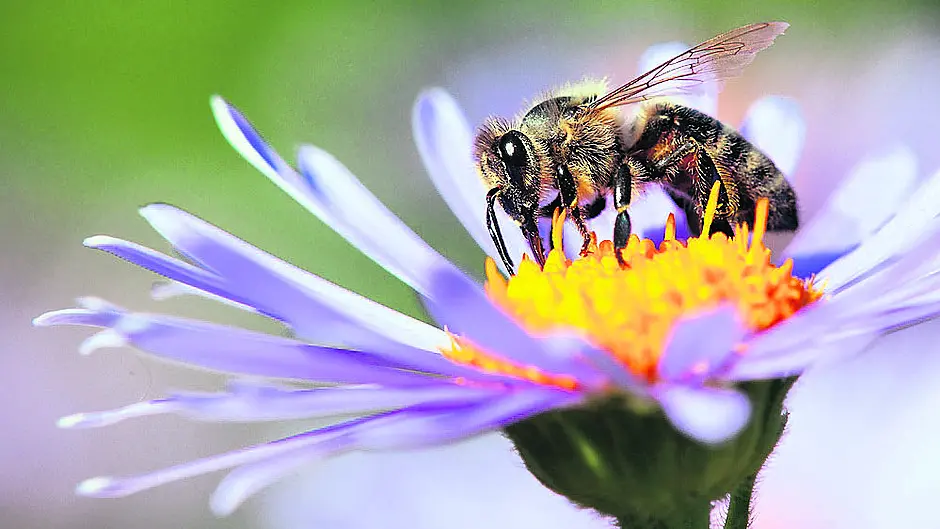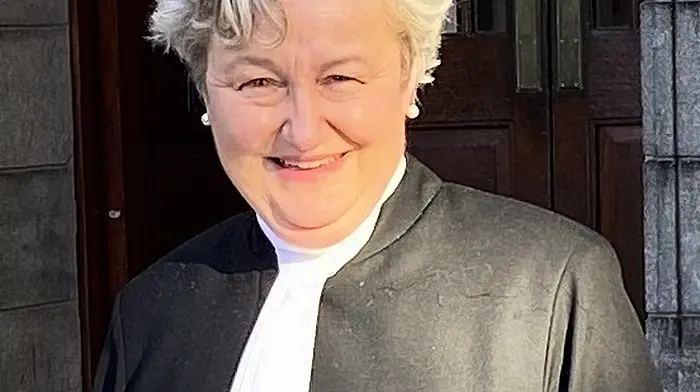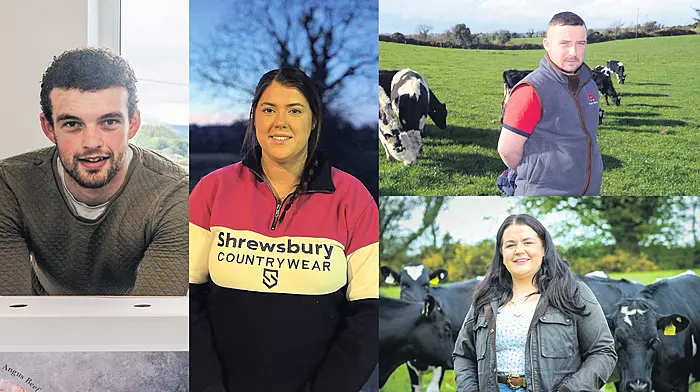Earlier this month, European Commission President Ursula Von der Leyen scrapped a contentious pesticide law, angering environmentalists across Europe.
BERNIE CONNOLLY of the Cork Environmental Forum says while the move is hugely disappointing, the fight must go on
THE Cork Environmental Forum has campaigned for some time, with its support for the ‘Save Bees and Farmers’ initiative, to have synthetic pesticides phased out of farming.
But we were shocked to hear Ursula von der Leyen announce recently that the Commission was withdrawing the pesticide reduction law. We view this as a retrograde step for food production, for farmers’ health, for nature and also for democracy.
The campaign was called ‘Save Bees and Farmers’ because pesticides are so harmful to our most prolific and important pollinators – bees – who provide a priceless ecosystem service to food production in Ireland and across the globe.
And farmers are the primary producers of our food.
However, they are under a lot of pressure at present with poor outcomes for water quality, habitat loss and poor practices laid at their door, including overuse of pesticides.
But just as farmers are price-takers, they are also advice-takers and a combination of the ‘one size fits all’ structure of the common agricultural policy (Cap) and poor advice from statutory bodies over decades have contributed to these poor practices.
There is no getting away from the hike in pricing for inputs, yet farmers adopting good practices are not being rewarded adequately – either from the agri-food corporates or from delivery of a results-based system from government.
Everyone is supportive of farmers being remunerated for actions that contribute to the common good of all, being both the owners of the majority of the land, and responsible for land use practices. Payment for good practice in food production is essential to transform how we use land and feed people with healthy food. Many farmers here are showing that more sustainable and nature-friendly practices are possible, including pesticide reduction.
Within the framework of programmes like the European innovation programmes, such as the Bride Farming with Nature programme. This structured payment system rewarded farmers for the efforts made in transitioning to using less inputs, such as fertilisers and pesticides.
However, pesticides are not just used in food production. They are also used by public agencies and organisations, as well as individuals.
The signal from Europe is not a good one. We really need to keep up the progress made on reducing use of pesticides, in many sectors.
For example, Cork City Council has banned the use of glyphosate – which is the active ingredient in the pesticide Round Up, for example – with an exception in the case of the invasive alien species, like Japanese knotweed.
Other local authorities are also taking steps in this direction and we would hope that Cork County Council will continue their efforts to also phase out use of such substances in public places throughout the county.
Children are especially sensitive to glyphosate. Farmers, too, are at risk when applying these very often toxic and harmful chemicals.
The widespread use of these products is having a massive impact on our bees and other insects. They continue to poison our soils, food, water and devastate the pollinator population and the insects essential to controlling pests, such as aphids.
States are jeopardising the future of our food, our farmers and future generations by putting the interests of the chemical and agrifood industries above those of the world’s citizens.
What is shocking is that those making the decisions in Europe simply did not listen to the very many scientists and citizens who asked them to put human health as well as biodiversity above the interests of the chemical industry.
We hope awareness of the harm caused to people and nature is growing and that individuals, in their own gardens, community groups such as Tidy Towns, GAA clubs and all State agencies stop applying these chemicals in public spaces and that farmers also take steps to reduce use and stop applying near schools, playing fields, watercourses and sensitive areas.
We can only continue our campaigning to have these harmful substances outlawed, and hope that our voice gets louder as more people join us.
* Bernie Connolly is a co-ordinator with the Cork Environmental Forum. See cef.ie for more.










